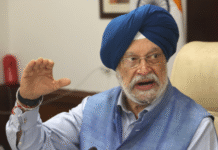New Delhi– The Telecom Regulatory Authority of India’s (TRAI) proposal for the broadcasting and cable services tariff is a step in the right direction, say analysts but feel some issues still need to be clarified.
The TRAI has floated a consultation paper on the draft Telecommunication (Broadcasting and Cable Services) (Eighth) (Addressable Systems) Tariff Order, 2016. Written comments on the draft are invited from the stakeholders by October 24, 2016.
The key points in the draft say every broadcaster should declare the nature of each channel as ‘free to air’ or ‘pay’ for different geographical areas; broadcaster can offer pay channels in the form of bouquet(s) and on a-la-carte basis. Price declaration should be as mentioned.
The paper said television households should pay Rs 130 as monthly rental per set-top box for 100 standard definition channels.
Regulator has proposed a genre-wise ceiling on channel prices. And finally it has said distributors of television channels can form bouquets from la-carte channels of broadcasters.
“While we consider the recommendations to be a step in right direction, we do note that there are still some issues which need to be clarified,” stated a report by investment banker Bank of America Merrill Lynch.
It said categories are not clearly defined. In general entertainment channel, it is general or premium but nothing for regional or niche like English channels.
“As digitisation is still not complete, it is not clear what each consumer is subscribing to and how much is being paid; educating the consumer on this new pricing and various options being available would not be easy and time consuming; any stakeholder not happy with the rules could take these in court where a stay could come.”
Kotak Institutional Equities said TRAI prescribed price caps for genres look reasonable.
“We expect broadcasters to set the market retail price (MRP) of most of the pay channels below price cap for optimum subscription revenues. In any case, broadcasters also have an option to declare a channel premium and set MRP that exceeds price cap.”
A key objective of the proposed tariff structure is to protect consumer interest.







